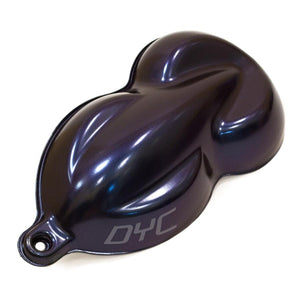In the sphere of material science, glow in the dark pigments are increasingly gaining prominence for their use in both creative design and safety applications. These unique substances possess the extraordinary ability to capture and slowly release light, resulting in an enchanting glowing effect in dim environments. This article delves into how these pigments are transforming diverse sectors with their remarkable capabilities.
- Decoding the Phenomenon of Luminescence
- The Mechanics of Glowing
The core principle behind these pigments is luminescence. Upon light exposure, these substances absorb photons, effectively storing energy. In darker settings, they gradually emit this energy as visible light, creating an enduring glow. This repeatable process renders these pigments highly adaptable and useful.
- Compositional Elements
Glow in the dark pigments are primarily composed of phosphorescent materials like strontium aluminate, infused with rare earth elements such as europium and dysprosium. The combination of these elements significantly influences the brightness and longevity of the pigment's glow.
- Diverse Applications in Design and Artistry
- Artistic and Decorative Uses
In artistic and interior design circles, glow in the dark pigment is leveraged to produce striking visual effects. Artists infuse these glowing materials into various mediums, from canvas art to sculptural pieces, adding a mesmerizing dimension to their creations. In home decor, these pigments find use in enhancing wallpapers, furnishings, and lighting fixtures, contributing to vibrant, interactive spaces.
- Fashion Forward Uses
Fashion designers are increasingly incorporating glow in the dark elements into their creations. These pigments are applied to clothing, accessories, and shoes, making fashion statements that are not only visually appealing but also functional in low-light conditions.
- Enhancing Safety Through Luminescence
- Vital Role in Safety Signage
A critical application of these glowing pigments is found in safety and emergency signage. Utilized in exit signs, hazard indicators, and pathway markers, they ensure visibility during power failures or in naturally dim environments, thereby guiding people safely.
- Applications in Transportation
In the transportation sector, these pigments are being integrated into road markings, vehicle paints, and bike lanes to improve visibility at night, aiming to reduce accidents and enhance road safety. Their use in protective gear like helmets and reflective clothing further underscores their safety benefits.
- Environmental and Health Impact
- Sustainable and Safe Practices
Contemporary glow-in-the-dark and color changing pigments are designed to be safe and eco-friendly, steering away from the radioactive components of the past. Nevertheless, appropriate handling and disposal practices are recommended to mitigate any environmental or health risks.
Future Directions and Potential
Boundless Possibilities
The scope for these pigments is expansive, with ongoing advancements expected. Future developments might include prolonged glow durations, a wider array of colors, and integration with advanced technologies for interactive designs.
Conclusion: A Bright Future for Glow in the Dark Pigments
Pigments that glow in the dark blend aesthetic allure with functional utility and help illuminate various applications from design to safety. Their versatile nature positions them to significantly influence future design and safety solutions.
KP Pigments: A Hub for Specialized Pigments
KP Pigments presents a diverse range of specialized pigments, catering to both hobbyists and professionals. Their portfolio extends from radiant glow in the dark pigments to captivating automotive color shift options. The site showcases a broad array of products, including pearls that exhibit color changes and innovative interference pigments, making it a comprehensive destination for pigment enthusiasts.
For More Info:-
Special Effect Pigment Manufacturer New York
Mixing Pearl Pigments to Create Custom Paints





Comments